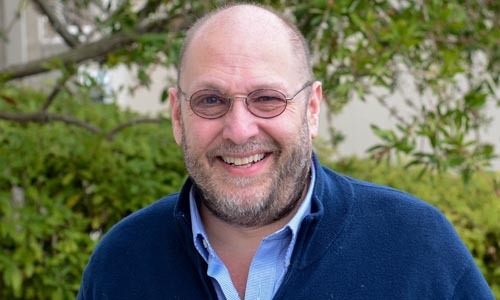Episodes

Thursday Sep 09, 2021
Using Liquid Biopsies to Diagnose Infectious Diseases
Thursday Sep 09, 2021
Thursday Sep 09, 2021
Liquid biopsies have become associated with the area of oncology as they hold the promise of using fragments of DNA circulating in the blood that have been shed by tumors to provide early indications of recurrence and customize treatment strategies. The same approach, though, can be used for infectious diseases. Karius has developed a liquid biopsy test to provide rapid and non-invasive detections of more than 1000 pathogens from a single blood draw. The Karius test helps clinicians avoid invasive, low-yield, and sequential diagnostic tests that can delay treatment for the most vulnerable hospitalized patients. We spoke to Alec Ford, CEO of Karius, about the company’s liquid biopsy test, how it works, and how it can change the treatment of immunocompromised patients.

Thursday Sep 02, 2021
Striking Hepatitis B at Its Core
Thursday Sep 02, 2021
Thursday Sep 02, 2021
The World Health Organization estimates that 270 million people worldwide suffer from chronic hepatitis B virus infections, making it a global epidemic that affects more than twice the number of people with hepatitis C and HIV combined. HBV is a leading cause of chronic liver disease and the need for liver transplantation, with up to 1 million people worldwide dying from HBV-related causes each year. While current treatments reduce the viral load, they don’t eliminate it. Assembly Bio is developing a pipeline of therapies aimed at curing HBV. We spoke to John McHutchison, president and CEO of Assembly Bio, about HBV, the company’s efforts to develop a new class of drugs to treat the condition, and what he’s learned from his work at Gilead successfully developing and commercializing therapies for HCV. A note to listeners: As we were publishing this episode Assembly Bio announced plans to discontinue development of its phase 2 candidate ABI-H2158 because safety concerns. The company said it will focus on advancing ongoing triple combination studies and earlier pipeline candidates.

Thursday Aug 26, 2021
Modulating Serotonin with Psychedelics to Treat Neuropsychiatric Conditions
Thursday Aug 26, 2021
Thursday Aug 26, 2021
Psychedelics have become an area of increasing investment and drug development activities as an emerging group of companies is working to develop these compounds as treatments for neurologic and psychiatric conditions. That’s because of the ability of these drugs to target serotonin, which plays a critical role in the regulation of cognitive function, emotions, memory, and the sleep-wake cycle. Bright Minds Biosciences is developing a pipeline of psychedelics as the next generation of serotonin modulators to treat neuropsychiatric, seizure, and pain disorders by restoring serotonin activity to normal levels. We spoke to Gideon Shapiro, vice president of discovery at Bright Minds Biosciences, about the role serotonin plays in the health of the brain, why psychedelics have emerged as compelling therapeutics for a range of conditions, and the company’s pipeline of drugs in development.

Thursday Aug 19, 2021
A Procedural Therapy Seeks to Address Type 2 Diabetes at Its Root Cause
Thursday Aug 19, 2021
Thursday Aug 19, 2021
Type 2 diabetes affects nearly 500 million people worldwide and more than 34 million people in the United States. The disease carries an elevated risks of heart attack, stroke, and other serious complications. Fractyl Health believes the approach to treating diabetes by controlling blood sugar levels and other symptoms has been faulty. Research has implicated a critical role the first section of intestine, known as the duodenum, plays in the condition and the company has developed a minimally invasive endoscopic procedure that it believes can correct the problem. We spoke to Harith Rajagopalan, CEO of Fractyl Health, about the company’s experimental procedural therapy to target the root cause of diabetes, how it works, and the path forward to commercialization.

Thursday Aug 12, 2021
Building a Better Path to Neurotherapeutics
Thursday Aug 12, 2021
Thursday Aug 12, 2021
The efforts to develop drugs for neurologic and psychiatric conditions has been plagued with failure. Herophilus is combining organoids derived from patient stem cells along with machine learning to gain new insight into the biology underlying these diseases and discover and develop more effective drugs. We spoke to Saul Kato, co-founder and CEO of Herophilus, about the drug development challenges for these diseases, how his company is using organoids and machine learning to better understand how to target them, and its growing pipeline therapeutic candidates.

Thursday Aug 05, 2021
Taking a Portfolio Approach to Immuno-Oncology
Thursday Aug 05, 2021
Thursday Aug 05, 2021
While the class of immunotherapies known as checkpoint inhibitors has brought a promising new approach to treating cancer, the development of resistance to these therapies limits the number of patients they benefit. Portage Biotech is building a set of platform technologies and a pipeline of immuno-oncology therapeutic candidates to address this problem. We spoke to Ian Walters, CEO of Portage about the problem of resistance, the company’s pipeline of candidates, and its portfolio-based business model.

Thursday Jul 29, 2021
Engineering Life to Reach New Worlds
Thursday Jul 29, 2021
Thursday Jul 29, 2021
Earth will not live forever. Whether its destruction comes as the result of cosmic inevitability or human-caused cataclysm, the planet will eventually meet its demise. Though that may be billions of years from now, Chris Mason in his book “The Next 500 Years,” argues humans have a more obligation to do what they can ensure life from Earth can extend beyond the planet. Mason, principal investigator on NASA’s twins study and a professor at Weill Cornell Medicine, discussed the effects of space on the human body, how it may be possible to genetically engineer human and other life forms to thrive in environments less hospitable than Earth through the use of new genetic tools, and the ethical considerations around these issues.

Thursday Jul 22, 2021
Targeting Cancer Drug Side Effects at Their Source
Thursday Jul 22, 2021
Thursday Jul 22, 2021
While great strides have been made the fight against cancer with new therapies, dose-limiting toxicities of these agents can have a big impact on the quality of life for patients and lead doctors to alter dosing at the price of optimal outcomes. Rather than treating the symptoms of the side effects of cancer drugs, OnQuality Pharmaceuticals is developing a pipeline of therapies that target the biologic pathways that at their source. It is developing targeted supportive therapies to treat such things as dermatologic conditions and diarrhea caused by cancer medicines. We spoke to Michael McCullar, CEO of OnQuality, about the need his company is addressing, its pipeline, and how he expects others to think about the value of the therapies the company is developing.

Daniel Levine
Daniel Levine is an award-winning business journalist who has reported on the life sciences, economic development, and business policy issues throughout his career. He is founder and principal of Levine Media Group, host of The Bio Report and RARECast podcasts, a senior fellow at the Center for Medicine in the Public Interest, and author of Global Genes’ annual NEXT report on emerging trends in the world of rare disease. From 2011 to 2014, he served as the lead editor and writer of Burrill & Company’s acclaimed annual book on the biotech industry. His work has appeared in numerous national publications including The New York Times, The Industry Standard, and TheStreet.com.

